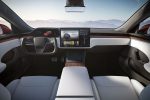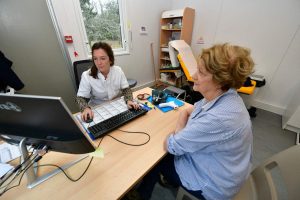
Tesla Wins US Fatal Crash Autopilot Trial
Tesla emerged victorious in its recent legal battle, marking a significant milestone for the electric vehicle manufacturer. The trial in question centered around allegations that Tesla’s Autopilot driver-assist feature was responsible for a fatal crash, a critical test case as the company faces various lawsuits and federal investigations related to this technology.
This verdict is Tesla’s second major legal win this year, reinforcing the argument that its software is not inherently defective. The company has been actively developing and rolling out its Autopilot and more advanced Full Self-Driving (FSD) system, which CEO Elon Musk has positioned as pivotal to the company’s future. However, these systems have drawn regulatory scrutiny and legal challenges, making this trial a significant turning point.
The central argument in this civil case was whether the Autopilot system was at fault for an accident that took the life of Micah Lee, the owner of the Tesla Model 3 involved in the crash, and seriously injured his two passengers, including an 8-year-old boy. The tragic incident unfolded as the car suddenly veered off a highway east of Los Angeles, struck a palm tree, and burst into flames.
The plaintiffs sought $400 million in damages, alleging that the Autopilot system malfunctioned. However, Tesla vehemently denied liability and contended that Lee had consumed alcohol before getting behind the wheel, which might have played a role in the accident. The automaker also pointed out the uncertainty surrounding whether Autopilot was engaged at the time of the crash.
In the end, the 12-member jury found that the vehicle did not have a manufacturing defect, delivering a verdict of 9-3. This outcome underscores the idea that, when accidents happen on the road, the primary responsibility still rests with the human drivers.
While the jury’s decision favored Tesla, the extended deliberation process suggests that some uncertainty lingers around the verdict, as expressed by the plaintiffs’ attorney, Jonathan Michaels. Tesla maintained that its cars are well-designed and contribute to road safety, firmly standing by the jury’s conclusion.
This victory is not Tesla’s first, as they also successfully defended themselves in a similar case earlier in the year. In that trial, Tesla emphasized that their technology requires human monitoring, despite names like “Autopilot” and “Full Self-Driving.”
Legal experts have noted that these verdicts underscore the belief that juries are emphasizing the critical role of human drivers in controlling the vehicle, even when assisted by advanced technology.
However, the Riverside case had unique steering issues, which may have contributed to the differing outcomes in these trials. In other lawsuits, plaintiffs have claimed that Autopilot is defectively designed, leading drivers to misuse the system. The Riverside jury’s specific focus was on evaluating whether a manufacturing defect affected the steering.
Despite these legal victories, Tesla faces ongoing scrutiny, including a criminal probe by the U.S. Department of Justice regarding claims that its vehicles can operate autonomously. The National Highway Traffic Safety Administration has also been investigating the performance of Autopilot, particularly in cases where Tesla vehicles have collided with stationary emergency vehicles.
While Tesla’s disclaimers have served as a powerful defense in civil cases, many experts and regulators contend that the broader issue of driver-assist technology and its limitations should be addressed by appropriate authorities to ensure road safety. The recent verdicts in Tesla’s favor have shed light on the evolving legal landscape in the context of advanced driver-assist systems and the essential role of human drivers in vehicle operation.

